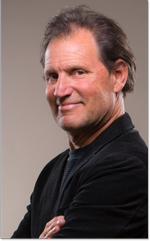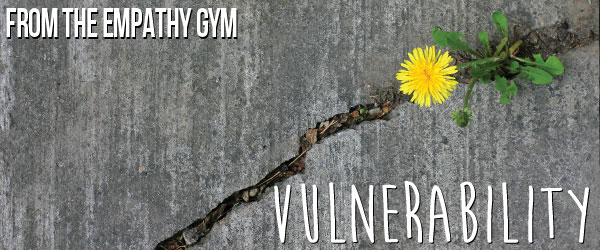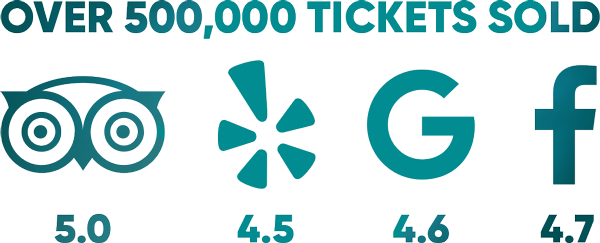
Bill English, Artistic Director
In the military sense, vulnerability means that your position is open to attack, that there is a gap in your defenses, a chink in your armor, an Achilles’ heel. Military strategists work ceaselessly to eradicate any weaknesses in their country’s defenses through which an enemy could penetrate.
In the social sense, vulnerability means that we are personally open to an emotional attack. To avoid such an assault, many of us become emotionally guarded. In order to maintain our equilibrium, we erect a wall: against beggars, online criminals, the news. We need a psychic suit of armor to shield us from the constant pummeling we receive in our Information Age
In the theatre, however, vulnerability is our greatest asset, and not being vulnerable can actually impair our performance. Over 20 years ago, I first leaned to be consistently vulnerable as an actor. I was performing the role of Shannon in Night of the Iguana by Tennessee Williams. A complex and tortured protagonist, Shannon is torn between the life of the spirit (he is a defrocked priest) and the world of the flesh (he leads tours of the jungle and seduces the women tourists). This was my first major leading role. I worked endlessly to fully understand and immerse myself in the character. Yet, several weeks into rehearsal, the director observed that my performance was wildly inconsistent. One day I would be terrific, then the next day I would be terrible!
Thrown into an emotional tailspin by this criticism, I desperately wanted to ensure that all my performances were terrific and never terrible. But I did not understand the cause of my inconsistent acting. A friend suggested that I consult a bioenergetics therapist. Although quite skeptical of the idea, I had no better solution, so I tried it out. Through the sessions, I discovered that my body would shut down in the face of Shannon’s volcanic emotional journey. The character’s self-hatred, shame, yearning, and loneliness sometimes overwhelmed my body and spirit, conditioned as they were to keep a stoic face to cover my emotions in the world. And on those days, my performance would be terrible.
The physical exercises of the bioenergetics therapy gave me the courage to confront my ugliest feelings, my hatreds, my shame, my fears, which allowed me to be raw and open in front of an audience. My acting improved significantly, and eventually, I could consistently bare my soul to a room full of strangers.
Ultimately, that ability to bare one’s soul to others is the fundamental foundation of effective acting. We search in the raw material of our own lives for an emotion, a need, a desire that matches the character we are playing and then we allow the audience to see into us. We do open-heart surgery on ourselves so that the audience can enter and share our experience in the empathy gym. This requires tremendous courage; perhaps a greater courage than that required to face physical danger. We must carry on despite the fear that we will be judged, ridiculed, scoffed, or even hated. We expose ourselves completely to the audience so that they can best experience the character’s own emotional journey.
These days, I rarely perform on the stage. But I hold frequent auditions and direct other actors. Every season, I watch hundreds of actors perform. Some are more skillful, some less well-trained, but what really makes an actor stand out for me is the degree to which they are vulnerable. Many actors try to create a mask that will portray emotions and character drives. But to the experienced eye, this type of “acting” fails to convince. The actors who succeed, in my opinion, are those that open their hearts and let us peer inside. I cast actors who allow themselves to be vulnerable, to be known, who let us see their darker selves.
The same is true for life off the stage. Most of us are guarded in our everyday lives. We cannot afford to reveal our true selves to just anyone. We often take great efforts to hide our weaknesses, our fears, our anger, our shame from other people, erecting emotional barriers to those around us. This makes us disconnected.
Just as an actor must be vulnerable to connect with an audience, we, in life, must be open and vulnerable if we want to truly connect with others. We have to let the others in. We can create a mask of what we believe others want to see, hiding behind our possessions or jobs or other artifice. We might be envied or even admired, but we will not be known. I believe that the most intimate human act is to genuinely know another person: to be wholly known and seen for who we really are. The only way to accomplish this, though, is by being vulnerable.
We are obsessed these days with “connecting.” We believe that being a great conversationalist, a funny joke teller, picking up the check, impressing someone with our apartment, our car, will help us connect. But the only real connection we can make to another person begins by being vulnerable, by letting ourselves be “known.”
The epigraph to E.M. Forester’s great novel Howard’s End reads, “Only connect.” Over one hundred years later, we still crave intimate connection with others, though we are not always able to achieve it. In order to connect, we must courageously let ourselves be seen and known. Only through this type of vulnerability can we accomplish genuine communion and connection with other people, either on stage or off.
As always, I’d love to hear your thoughts. Please feel free to leave your comments below.
Best,

Bill
Latest posts by San Francisco Playhouse (see all)
- Just Announced: Our 2024/25 Season - March 2024
- Location Search – Nollywood Dreams - August 2023
- Sons of Maui - July 2023




You hit a nerve with me again. The raw vulnerability factor. I thought the best thing about me and my personal life was the fact that I was able to open myself up to strangers who I thought were worthy of that trust. I put myself and my life on the line when I sensed a kindred spirit who may or may not open up in turn. That’s mainly how I started and grew my amazing friendships all over the world. But I always put myself on the line first. And some of the time I bombed spectacularly, had to pick up the pieces, and grow some armor. Or maturity. Or more luck. This all leads me to this peculiar love of live theater where I find kindred spirits on different stages.
I am so addicted to it perhaps because I allow myself to be vulnerable regularly. The actors who blow me away the most are the ones who make me hurt for them or laugh with them on a very personal level. They allow me in.
Keep up the good job of nerve hitting subjects for your blog. Love to Susi.
Another term for “vulnerablity” is “empathy”. Both require a feeling of ‘but for the grace of god, there go I”. NOt too much of either in our current society.
I subscribe to a daily newsletter called “Today in Literature”. Today there was a quote that seems to tie in with the topic of truly knowing others:
People can’t long tolerate a ruler, nor can a master his servant, a maid her mistress, a teacher his pupil, a friend his friend nor a wife her husband, a landlord his tenant, a soldier is comrade nor a party-goer his companion, unless they sometimes have illusions about each other, make use of flattery, and have the sense to turn a blind eye and sweeten life for themselves with the honey of folly.
From “In Praise of Folly”, by Erasmus, who died on this day in 1536